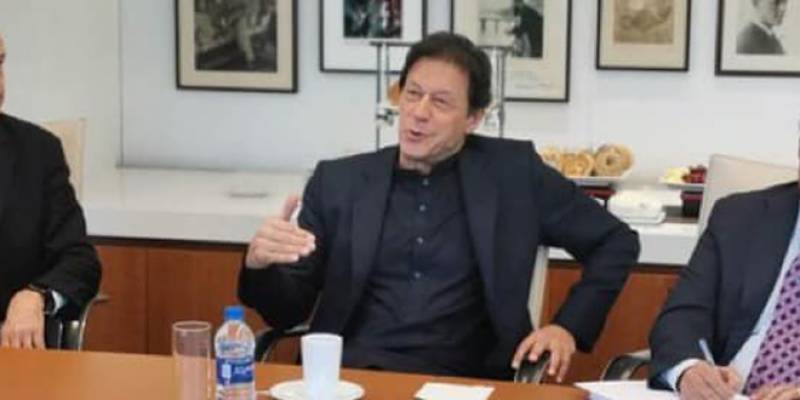New York (Web Desk): Prime Minister Imran Khan said Pakistan wanted to lift its people out of poverty and focus on building a peaceful neighbourhood but the Rashtriya Swayamsevak Sangh (RSS)-backed Narendra Modi government was following an agenda rooted in racial supremacy.
Talking to the editorial board of Wall Street Journal (WSJ) in New York, he said racism is often rooted in arrogance and arrogance can lead people to make huge blunders, that’s what Modi has done in occupied Kashmir.
PM Imran said India’s repressive and illegal actions in occupied Kashmir would not only have repercussions for the region but for the entire Muslim world. The world doesn’t realise that we are heading for a big disaster.
About Afghan peace talks, the prime minister said the world should not fear that a peace deal in Afghanistan would take us back to 2001. Peace is the most important goal and we should all pursue it, he added.
Prime Minister Khan called for resumption of Afghan peace talks between the United States and the Taliban.
Separately, talking to the editorial board of US newspaper New York Times, Khan said there is a danger of bloodbath in the Indian Occupied Kashmir (IOK) and the world must act to avert that.
Separately, talking to the editorial board of US newspaper New York Times, Khan said there is a danger of bloodbath in the Indian Occupied Kashmir (IOK) and the world must act to avert that.
The PM said he would appeal to the United Nations (UN) for help as India’s military clampdown in occupied Kashmir enters its seventh week. “If the UN doesn’t speak about it, who is going to speak about it?” PM Imran said.
PM Imran said India was behaving irrationally, and against its own longer-term interests. “Arrogance,” he said, “stops people from being rational.”
“This is the UN's job,” he said, adding, “They have to intervene, send observers there.”
Since August 5, Occupied Kashmir has been under lockdown after New Delhi decided to revoke the special status of the valley. In the past two months, Indian forces have rounded up at least 2,000 Kashmiris, including elected representatives.


